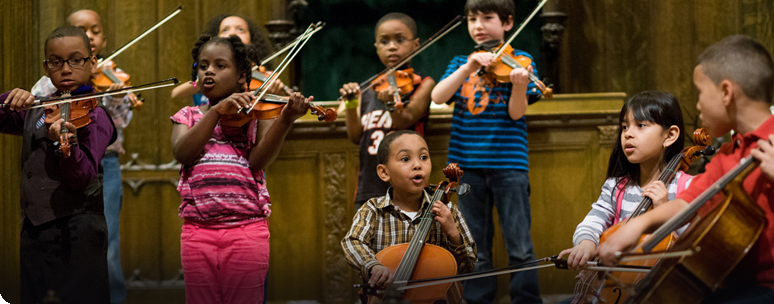On April 12 and 13, Aaron and Heath traveled to Washington to attend Arts Advocacy Day, sponsored by Americans for the Arts. Along with over 500 arts advocates, we went to Washington to underscore the importance of developing strong public policies and appropriating increased public funding for the arts.
This trip was a chance for us to see what role CMW could play in advocating for the arts in Washington. Our students are growing accustomed to being advocates for the arts and arts education (recently our Phase III teens performed at the Rhode Island State House), but we wanted to explore how we could expand our advocacy efforts beyond Providence and Rhode Island.
April in DC: allergy season in full bloom
And so it was with this in mind that we set out on our first day. Our congressional office visits were scheduled for Tuesday, so Monday was devoted to training. Heath and I plunged head-first into the lobbying world, taking Lobbying 101 and quickly graduating into Lobbying 201. We learned the difference between advocating and lobbying, how to present a unified message, the importance of getting your “ask” in early in your meeting with busy staffers and legislative assistants, and how best to explain how arts funding serves the interests of not only small communities, but also the country at large.
The Patricia M. Sitar Center for the Arts
During our lunch break we walked over to the Sitar Center, a local, multidisciplinary arts center that offers lessons in visual arts, music, drama, dance, digital arts and creative writing to predominantly low-income youth. We were especially curious to see their relatively new facility – food for thought as CMW ponders what shape our future home will take! Having admired their practice rooms and concert hall (and having had a brief glimpse of the First Lady of Malaysia who was also visiting!), we walked back to the conference, admiring the cherry blossoms in full-bloom on the way.
Attending a speech by Rocco Landesman of "Art Works" fame
The afternoon saw more sessions on lobbying – Facts and Figures, Role Playing Demonstrations, and Breakout panels on the various policy issues we were tackling on Tuesday. Full of facts, Heath and I set out in the direction of the Kennedy Center to attend the 23rd Annual Nancy Hanks Lecture on Arts and Public Policy.
Joseph P. Riley, Jr., Mayor of Charleston, South Carolina, delivered the lecture on Arts and Public Policy this year. In an inspiring and often humorous lecture, Mayor Riley outlined how the art of city design transformed cities into more livable and cultural communities. Heath and I had the pleasure of being accompanied by friend of CMW, Eva Jacob. While at the National Endowment for the Arts, Eva was central in the establishment of the Rural Residency program for chamber music groups.
Aaron checks out the Kennedy Center's grand foyer
Tuesday saw us rise early to head to the Hill for the Congressional Arts Kick Off event, where the Congressional Arts Leadership Award was presented to Speaker of the House Nancy Pelosi. Along with several senators, she spoke to the assembled crowd of arts advocates and re-affirmed her support for arts initiatives. We met up with the rest of our substantial Rhode Island delegation (at 7 delegates we out-represented a number of much larger states!) and finalized the details of our presentation for our congressional visits.
Arts Advocacy press event in the Congressional Caucus Room
Itʼs important to note that Rhode Islandʼs senators and representatives
have been very supportive of the arts. Our visits served two purposes:
to thank them for their continued support, and to highlight some key
issues we think they should focus their efforts on. Heath and I focused
on funding for the National Endowment for the Arts. Americans for the
Arts was asking for a funding increase from the current level of $167.5
million in 2010 to $180 million in 2011. In addition, Heath and I
highlighted the impact that the arts funding in the federal stimulus
bill has had on CMW this year.
The RI delegation in Representative Kennedy's conference room
We met with one of Representative Patrick Kennedyʼs aides first, outlining our requests and thanking Representative Kennedy for his past strong support. We then walked past the Capital, the Library of Congress, and the Supreme Court on the way to the Hart Senate Building, admiring the large Calder sculpture in the atrium. There we met with Senator Jack Reed and his legislative assistant, again thanking him for his support and recommending where he might focus his efforts.
Public art (a Calder) in the Hart Senate Building
Heath and I had to depart for the Baltimore aiport to return to Community MusicWorks for a board meeting that evening, but the rest of the Rhode Island delegation met with Senator Sheldon Whitehouse and Representative James Langevin later that afternoon.
All told, it was a fascinating glimpse into the world of Washington advocacy and lobbying, and it gave us a better picture of what a future trip with CMW students would look like. It was exciting to see how strongly the arts are represented in Rhode Island!
-Aaron McFarlane, CMW staff
More photos of Arts Advocacy Day in the Americans for the Arts' Flickr account.
